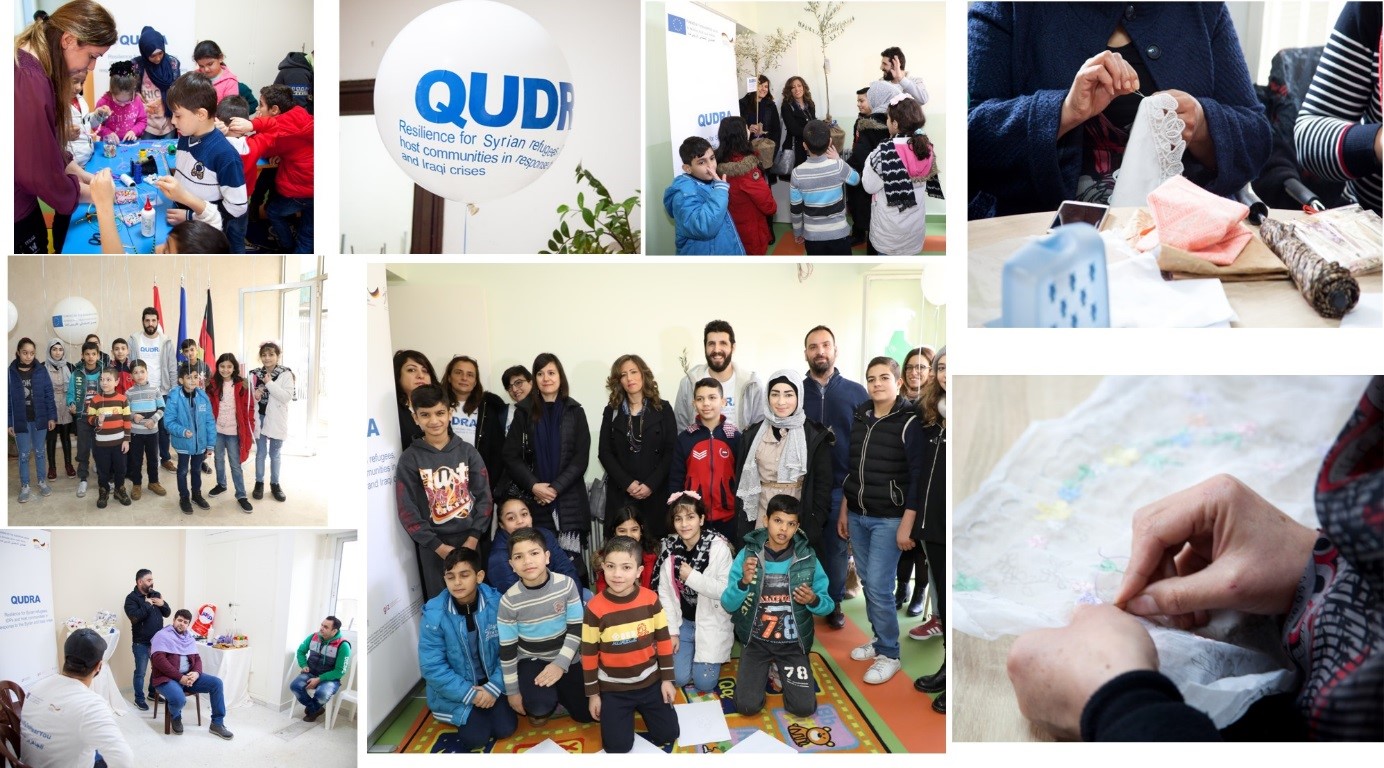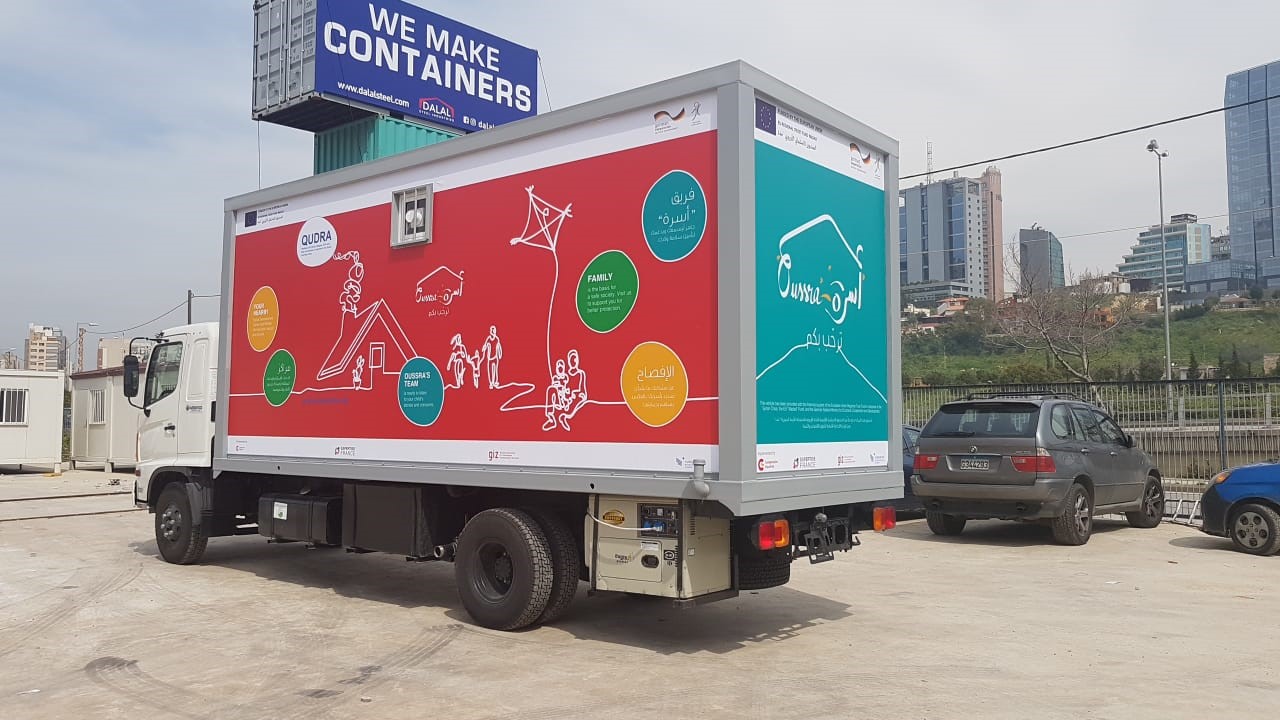QUDRA: Protecting vulnerable populations in Lebanon
Social development centres (SDCs) are central to local communities and serve them. Activities for primary and secondary protection for children and adults contribute to reducing tensions and strengthening social stability. In the context of QUDRA, Expertise France is working with the Ministry of Social Affairs (MoSA) to rehabilitate 10 centres and set up protection activities in them for children and their families, who are among the most vulnerable populations.
Ten social development centres put back into service
Expertise France has coordinated the rehabilitation of ten social development centres across the country, upgraded their equipment and ensured that a transport system has been set up around them to extend their areas of action.
Construction works ongoing at Chmestar Social Development Centre, in Bekaa Lebanon. This centre is under rehabilitation by Qudra to foster social stability between refugees and host communities.@expertisefrance @AmbaFranceLiban @EUinLebanon @GermanEmbBeirut @EC_AVService pic.twitter.com/SBtVPB8iBz
— QUDRA Programme (@QudraProgramme) 1 avril 2019
To be able to propose activities and support to vulnerable populations in these centres, Expertise France has partnered with 4 Lebanese NGOs that are recognised for their sectoral expertise and operating method: Abaad, Afel, Akkarouna and Mouvement Social.
To build the capacity of NGOs to manage the centres, experts mobilised by Expertise France have supported their staff by training them and helping them to develop psycho-social tools. Over 235 team members have benefited from support from the QUDRA programme to improve their skills via various training courses.

Activities targeting children and their families
Recreational activities are now organised for children, particularly children at risk (children affected by an armed conflict and violence, children who have left school, unaccompanied minors…). Through games, sport and arts activities (dance, drawing…) and depending on the age, the group leaders address key issues for child welfare: body image and self-confidence, non-violent communication, children’s rights, healthy lifestyle habits, drug addiction…
 #VoicesfromQudra : Read Omar’s testimony
#VoicesfromQudra : Read Omar’s testimony
Furthermore, psychosocial support is offered to women and men. Particular attention is paid to people at risk, such as the disabled, young people, single mothers and the elderly. The subjects of the sessions are selected according to the needs: sexual and sexist violence, early marriages, domestic violence and social exclusion, non-violent communication, anger and stress management, self-esteem, as well as displacement, trauma and change.
In just 3 months, over 3,000 people attended the various sessions organised via the QUDRA programme. 90% were women for the protection activities, where 56% come from Syria. The child protection activities currently receive 3 times more Syrian child refugees than Lebanese children, with parity between girls and boys.

The first mobile units for isolated populations

These vehicles make it possible to reach the most vulnerable beneficiaries who are unable to go to the social development centres. These mobile units offer psychosocial support. They also seek to stimulate the creation of social ties in these isolated areas through leisure activities: Olympic games, art and crafts therapy activities, sessions to raise awareness of how to reduce conflicts, non-violent communication and tolerance.
For further reading: Qudra in Turkey: building links between refugees and host communities
The QUDRA programme works with refugees, displaced persons and host communities in four neighbouring countries of Syria: Jordan, Lebanon, Northern Iraq and Turkey. The programme is financed by the Madad Fund for Syria and the German Federal Ministry for Economic Cooperation and is implemented by a European consortium (Germany-GIZ, France-Expertise France, Spain-AECID, Hungary-HIA).
 For further information: www.qudra-programme.org
For further information: www.qudra-programme.org
 Follow QUDRA’s news on Twitter: @QUDRAProgramme
Follow QUDRA’s news on Twitter: @QUDRAProgramme

